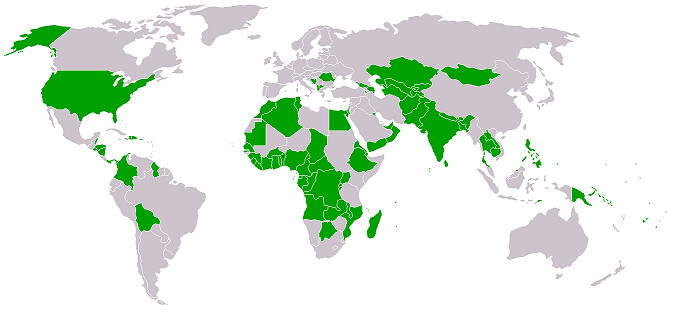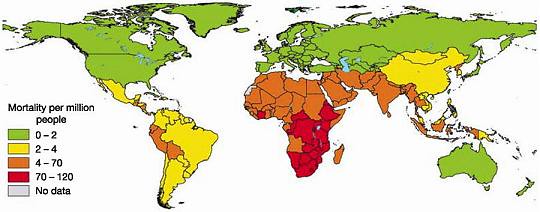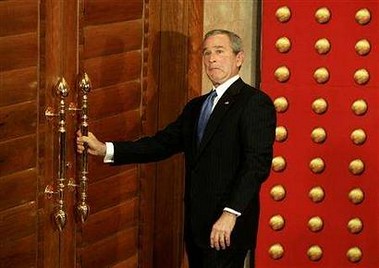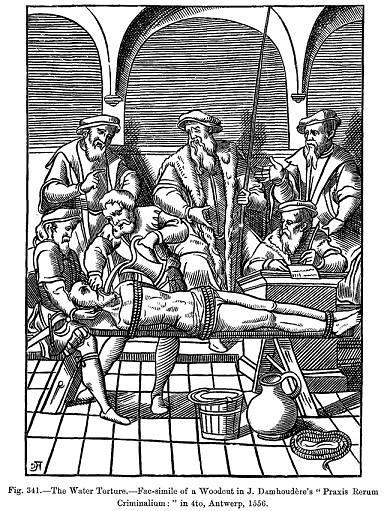I've been paying some attention over the last few days to the media kerfuffle surrounding Don McKinnon's reported comments at CHOGM. Given that McKinnon claims to be a victim of sloppy journalism, I thought it would be useful to go straight to the source: the text of his address. According to this, he said:
Democracy and development, as we know, are two sides of the same coin. One of the questions people are beginning to ask, though, is whether building a democracy is really the road to prosperity. Does democracy put food on our tables, clothe our children, put roofs over our heads and give us a future?
There is no single answer, no single roadmap, no single 'one size fits all'. What is important is that a democracy must meet the aspirations of all the people so that they can participate and exert an influence. It is on that foundation that one can best build a sustainable economic platform.
On one level, this is obvious, banal stuff. Democracy doesn't put food on the table - that's not what it is for. And there's certainly no single model of democracy (despite what the Americans say); the thriving democracies of India, Canada and New Zealand show that there are a multitude of different implementations. But McKinnon was going beyond that, and actually talking down democracy and lending support to the Commonwealth's less democratic members - and that is not what the Commonwealth stands for. The 1991 Harare Declaration is very explicit on this, stating:
we believe in the liberty of the individual under the law, in equal rights for all citizens regardless of gender, race, colour, creed or political belief, and in the individual's inalienable right to participate by means of free and democratic political processes in framing the society in which he or she lives
This requires a lot more than merely being able to "exert an influence", and by seeming to limit democracy to that level, McKinnon was betraying the ideals he is supposed to be defending.
What about the wider question? McKinnon's comments have spawned a pair of editorials in the Herald defending democracy (and in Mike Moore's case, arguing that it delivers better results than authoritarian regimes). Against this, there's also a post from Aaron Bhatnagar defending (some forms of) authoritarianism as the path to democracy. Aaron points out that democracy requires a hell of a lot more than elections, and that what's really important is the cultural infrastructure beneath it (the rule of law, freedom of press and assembly, and last but not least, respect for democratic outcomes). In successful democracies, this cultural infrastructure has generally developed under less than democratic governance - our own path to democracy (most of which took place in the UK) took us through absolute monarchy, censorship, and widespread political repression as well as civil war, dictatorship, revolution and a severely limited franchise (which we universalised in New Zealand long before they did in the UK). And often, the problem in so many countries where democracy is struggling is the lack of this cultural infrastructure. They have the legal forms of democracy, but the participants don't believe in it, and so we see things like we are seeing in Kenya or Uganda or Ethiopia right now.
Where Aaron goes wrong is going from this to supporting authoritarians. And he does this by shifting from the "narrow" view of democracy in the Harare declaration to a "wide" view which is simply the old right-wing canard about prosperity being a necessary condition for democracy (a case strongly refuted in the editorials linked above). He cites the examples of Brazil and South Korea - authoritarian regimes which produced stunning economic growth and eventually yielded to democracy - as supporting
[the] wise point that economic stability and subsequent prosperity plays a major role in ensuring the promotion of democratic governance.
But this is simply ignoring history. Both the military regimes Aaron cites so approvingly were established against existing democratic backdrops; they didn't "promote" democracy so much as return to it - having suppressed dissent, undermined the rule of law, and tortured, beaten, murdered and massacred democrats in the meantime. Aaron's "wide" view then looks increasingly like an attitude of prosperity for some at the expense of freedom for all, his "wise point" like nothing so much as the prewar admiration of British and European conservatives for the "economic miracle" of fascism, and his support for the "right" kind of authoritarians, who produce a liberalised economy and provide "security" (for who?) like the modern version of "making the trains run on time".













